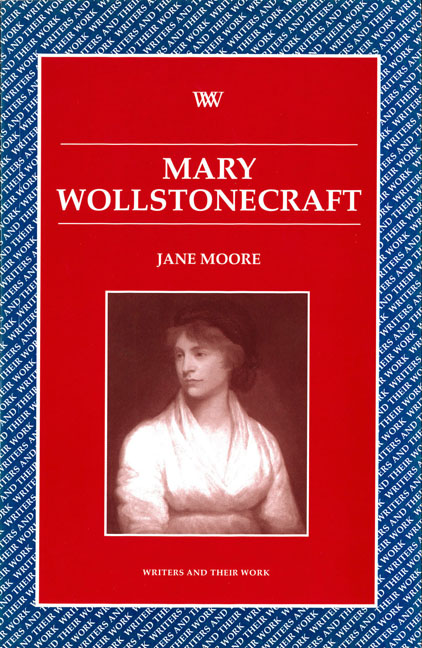Book contents
- Frontmatter
- Contents
- Acknowledgements
- Biographical Outline
- Abbreviations and References
- 1 Introduction: An Extraordinary Woman
- 2 Early Rebellion: Thoughts on the Education of Daughters, Mary. A Fiction, and ‘The Cave of Fancy`’
- 3 Professional Works: Original Stories from Real Life, The Female Reader, Translations, and Reviews
- 4 Revolutionary Protest: A Vindication of the Rights of Men, Vindication of the Rights of Woman, and The Wrongs of Woman: or, Maria. A Fragment
- 5 Romantic Ventures: An Historical and Moral View of the Origin and Progress of the French Revolution and ‘Letters to Imlay’
- 6 Final Destinations: Letters Written During a Short Residence in Sweden, Norway and Denmark, and Posthumous Works
- Notes
- Select Bibliography
- Index
1 - Introduction: An Extraordinary Woman
- Frontmatter
- Contents
- Acknowledgements
- Biographical Outline
- Abbreviations and References
- 1 Introduction: An Extraordinary Woman
- 2 Early Rebellion: Thoughts on the Education of Daughters, Mary. A Fiction, and ‘The Cave of Fancy`’
- 3 Professional Works: Original Stories from Real Life, The Female Reader, Translations, and Reviews
- 4 Revolutionary Protest: A Vindication of the Rights of Men, Vindication of the Rights of Woman, and The Wrongs of Woman: or, Maria. A Fragment
- 5 Romantic Ventures: An Historical and Moral View of the Origin and Progress of the French Revolution and ‘Letters to Imlay’
- 6 Final Destinations: Letters Written During a Short Residence in Sweden, Norway and Denmark, and Posthumous Works
- Notes
- Select Bibliography
- Index
Summary
In her work, her politics, and her life, Mary Wollstonecraft was the most scandalous woman writer of her generation. She achieved fame as a feminist author in 1792 with the publication of her Vindication of the Rights of Woman. The book's bold claim that women were men's intellectual equals, and should therefore have the same rights as them, shocked the majority of those in the eighteenth-century who subscribed to the basic belief that Nature intended women to be wives and mothers, not writers and thinkers. Wollstonecraft's enduring support for the high ideals fostered by the French Revolution and her unpatriotic exposure of the sexual and social injustices endorsed by British law further alienated her from popular opinion. But she became a truly scandalous figure when, shortly after her premature death in 1797 at the age of 38, William Godwin, her husband of five months, gave an unvarnished account of her extraordinary life, including details of her love affairs, her suicide attempts, and her illegitimate pregnancies.
Though her ideas were coolly rational, Wollstonecraft's life was stormy and romantic, a drama of independence and resolution mixed with continual despair and disappointment. Born into a failing middle-class family of English and Irish parentage, she took the courageous step of leaving home at 19 to earn her own living as a lady's companion, one of the few occupations open to a genteel woman. Later, she worked as a schoolteacher and a private governess before gaining employment as a reviewer on the radical periodical Analytical Review, owned by the London printer Joseph Johnson, who also published William Blake's anarchic poetry and Thomas Paine's incendiary political treatise The Rights of Man (Part I, 1791; Part II, 1792). Working for Johnson gave Wollstonecraft entry into the male world of professional writing. She wrote prolifically, meeting tight deadlines and taking on a range of tasks, including editorial work, reviewing, and translating. Other women had earned a living from writing, but few engaged in the hack work that was the mainstay of Wollstonecraft's career and the source of her financial self-reliance. No wonder that she called herself ‘the first of a new genus’ (CL 164).
- Type
- Chapter
- Information
- Mary Wollstonecraft , pp. 1 - 8Publisher: Liverpool University PressPrint publication year: 1999



